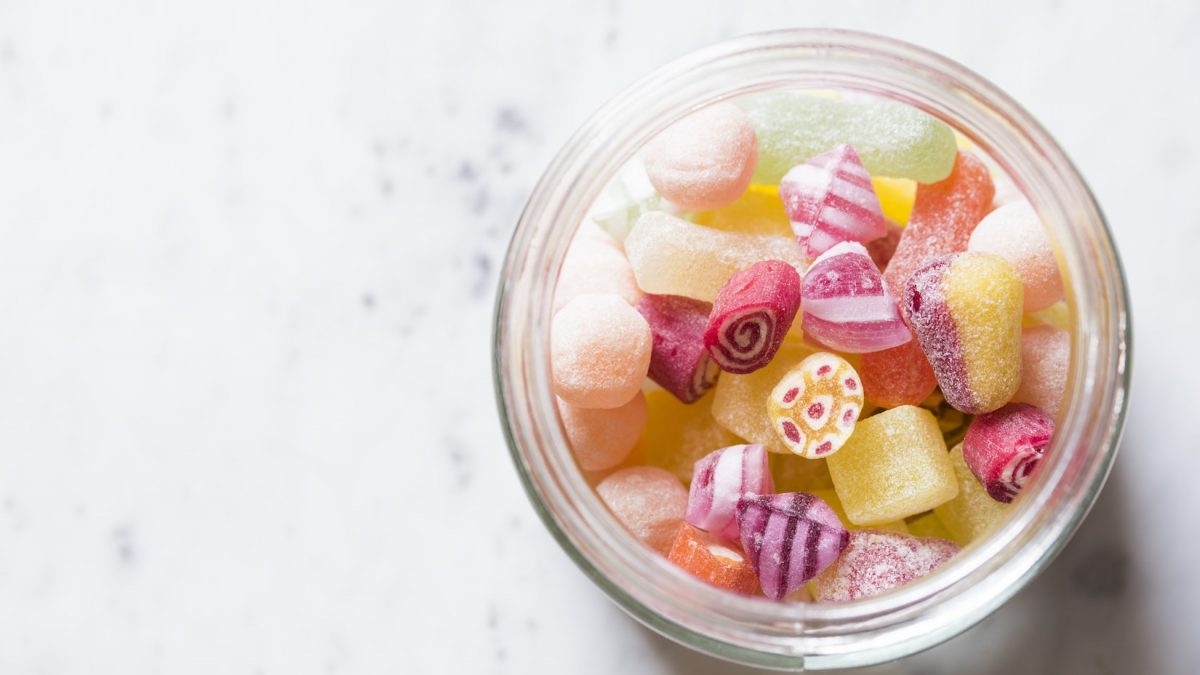
The puzzle of motivation – Dan Pink
13 de julho de 2018What exactly is a startup?
18 de julho de 2018Quiz: Are You Addicted to Sugar?
- How often do you eat or drink sugary foods or beverages (including ones made with no-calorie sweeteners)?
A)Once or twice a month, at most. I’m not big on sweets.
B)I’ll have dessert a couple of times per week. - C)Pretty much every day.
- What’s your typical breakfast like?
A) Scrambled eggs with vegetables, toast, or even last night’s leftovers.
B) Greek yogurt, oatmeal with fruit, or a smoothie.
C)Sugary cereal, a muffin, or a breakfast cookie. - How much sugar or sweetener do you usually add to your coffee?
A) None.
B)A teaspoon or one packet.
C) Two teaspoons or two packets. At least. - How often do you go out of your way to get something sugary—like stopping at the store just to buy candy?
A) Almost never.
B)Every once in a while, if I get a crazy craving for something.
C)Often—like, at least once a week. - Do you ever eat sugary foods secretively?
A) No. If I’m having dessert, it’s part of a meal or an event with others.
B)A couple of times a year I definitely feel like eating a pint of ice cream. - C) I usually wait to eat dessert until I’m alone, so I can really chow down without anyone judging me.
- Do you hide sugary foods to eat them later?
A)No. Why would I do that?
B)Not usually. But if I know there’s only one more piece an amazing pie left, I might rearrange a few things in the fridge to make it harder for anyone else to find.
C) Yup, I enjoy eating sweets when I’m by myself. - Do you ever feel powerless in front of sugary foods or foods made with refined flour, like white bread?
A) Rarely. It’s just not my thing.
B) Maybe once in a while, if I’m starving. But usually I can have one or two cookies and stop.
C) Yes. Usually once I start eating stuff like that, it’s really hard to stop. - While indulging, do you ever tell yourself that this is the “last time” you’ll ever eat like this?
A) No.
B) I tried once or twice in the past to cut out sugar, but I realized it wouldn’t work in the long run.
C)I tell myself that a lot, and end up feeling bad when I don’t follow through.
OK! Now it’s time to add up your score. If you got…
Mostly As: You may be immortal.
You’re definitely not addicted to sugar. In fact, it sounds like you’re practically immune to the sweet stuff altogether, which makes us wonder if you’re even human. What’s your secret?
Mostly Bs: You and sugar are a-okay.
Congratulations! It sounds like you have a healthy relationship with sugar. You enjoy sweet stuff when you’re in the mood, but dessert doesn’t rule your life. So don’t try to cut back—it might end up backfiring by making you feel deprived. “Treat yourself to one small thing per day. If you allow yourself that one treat, you won’t feel like you’re missing out and you’ll be less likely to binge,” says Schapiro.
Mostly Cs: You’re a sugar friend.
Addiction might be a strong word, but it sounds like you have an unhealthy relationship with sugar. Instead of trying to quit cold turkey, try working with a dietician to help you scale back on the sweet stuff gradually (like, by using just two packets in your coffee instead of three, or doing dessert three times a week instead of every night). “If you just cut it out, you’ll be thinking about it constantly and it will run your life,” says Schapiro.
Say whether the statements below are a Myth (M) or True (T):
( ) 1-Sugar contains a lot of calories, with no essential nutrients. It also causes tooth decay by feeding the harmful bacteria in the mouth.
( ) 2- makes people stressed.
( ) 3-Excess fructose gets turned into fat, which can lodge in the liver and cause non-alcoholic fatty liver disease.
( ) 4-When people eat a lot of sugar, it can cause resistance to the hormone insulin, which can contribute to many diseases, like diabetes.
( ) 5-There is considerable evidence that sugar can contribute to cancer.
( ) 6-Sugar is energy. There’s no healthy diet without sugar.
( ) 7-Because sugar causes a large release of dopamine in the brain, it can cause addiction in a lot of people.
( ) 8-Sugar dramatically increases the risk of becoming overweight or obese.
( ) 9-Many studies find a strong association between sugar consumption and the risk of heart disease.
( ) 10-Sugar is one of the most addictive substances on Earth.
Sugar: natural reward, unnatural fix
In neuroscience, food is something we call a “natural reward.” In order for us to survive as a species, things like eating, having sex and nurturing others must be pleasurable to the brain so that these behaviors are reinforced and repeated.
Evolution has resulted in a brain system that deciphers these natural rewards for us. When we do something pleasurable, a bundle of neurons uses the neurotransmitter dopamine to signal to a part of the brain.
The connection between this part of the brain and our prefrontal cortex dictates our motor movement, such as deciding whether or not to taking another bite of that delicious chocolate cake. The prefrontal cortex also activates hormones that tell our body: “Hey, this cake is really good. And I’m going to remember that for the future.”
Not all foods are equally rewarding, of course. Most of us prefer sweets over sour and bitter foods because, evolutionarily, our brain reinforces that sweet things provide a healthy source of carbohydrates for our bodies. When our ancestors went scavenging for berries, for example, sour meant “not yet ripe,” while bitter meant “alert — poison!”
How to stop sugar from sneaking into your child’s diet
Today, with convenience more important than ever in our food selections, it’s almost impossible to come across processed and prepared foods that don’t have added sugars for flavor, preservation, or both.
These added sugars are sneaky. In ways that drugs of abuse — such as nicotine, cocaine and heroin — hijack the brain’s reward pathway and make users dependent, increasing neuro-chemical and behavioral evidence suggests that sugar is addictive in the same way, too.
Sugar addiction is real
When you stop eating sugar, the first few days are a little rough. It almost feels like you’re detoxing from drugs. People found themselves eating a lot of carbs to compensate for the lack of sugar.”
There are four major components of addiction: bingeing, withdrawal, craving, and cross-sensitisation (the notion that one addictive substance predisposes someone to becoming addicted to another). All of these components have been observed in animal models of addiction — for sugar, as well as drugs of abuse.
Experiments with rats
A typical experiment goes like this: rats are deprived of food for 12 hours each day, then given 12 hours of access to a sugary solution and regular food.
After a month of following this daily pattern, rats display behaviors similar to those on drugs of abuse. They’ll binge on the sugar solution in a short period of time, much more than their regular food. They also show signs of anxiety and depression during the food deprivation period.
Many sugar-treated rats who are later exposed to drugs, such as cocaine and opiates, demonstrate dependent behaviors towards the drugs compared to rats who did not consume sugar beforehand.
Like drugs, sugar spikes dopamine release in the brain.
Blame sugar? We’ve been doing that for over 100 years.
In short, this means that repeated access to sugar over time leads to prolonged dopamine signaling, greater excitation of the brain’s reward pathways and a need for even more sugar to activate the brain like before. The brain becomes tolerant to sugar — and more is needed to attain the same “sugar high.”
DISCUSSION:
- Can you think of any other reward such as food, water, sex, and nurturing that is as pleasurable?
- Why does sugar such as nicotine, cocaine and heroin make users dependent?
- What do you think about scientific experiments with animals?
- If sugar is so bad for the health, why don’t governments prohibit its production and sales?
- Do you believe a healthy diet must contain sugar? Why (not)?
- Would be able to cut out sugar? Why (not)?
- Is there any other kind of food you can’t deprive yourself of?
- What do you think about Brazilian eating habits?
- Would you ever adapt to different eating habits such as American or British?
- “ YOU’RE WHAT YOU EAT”. ARE YOU FOR OR AGAINST THIS STATEMENT?






1 Comment
Great text!